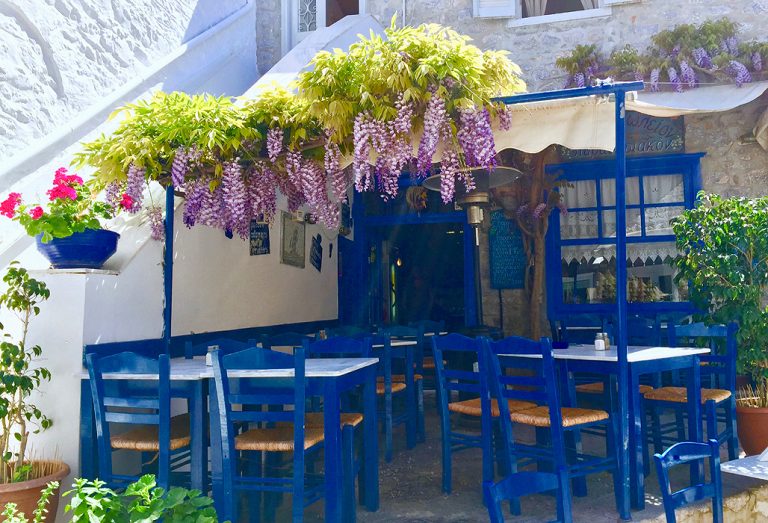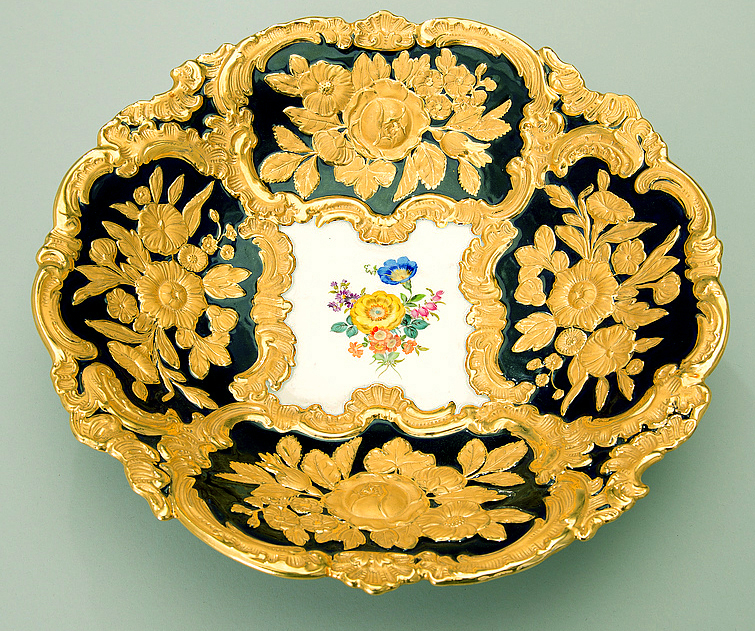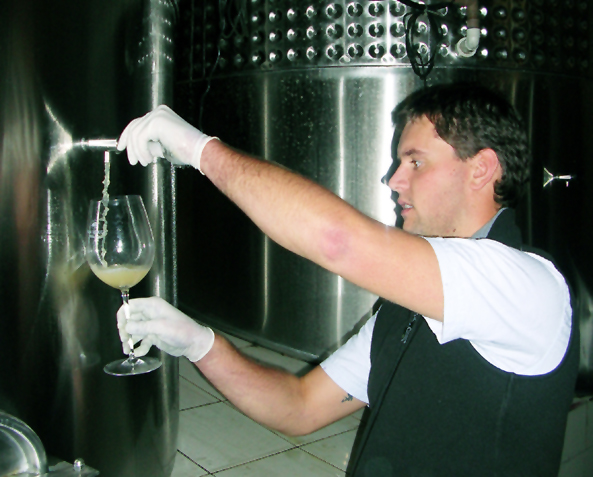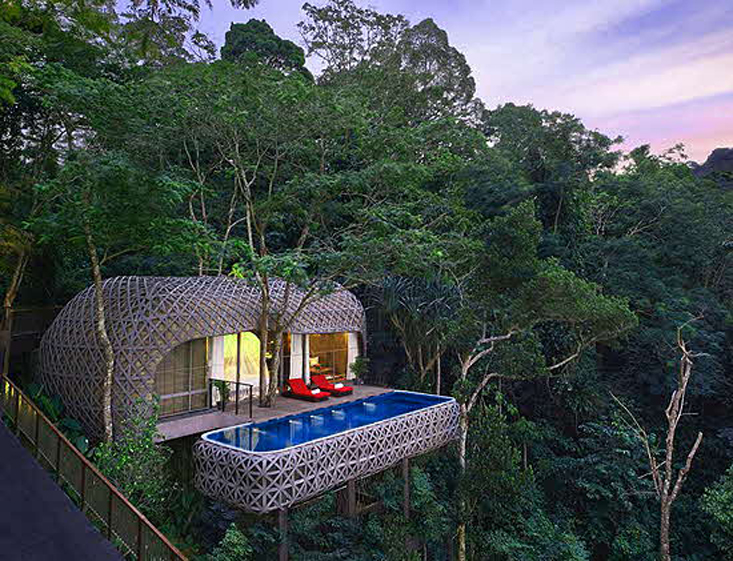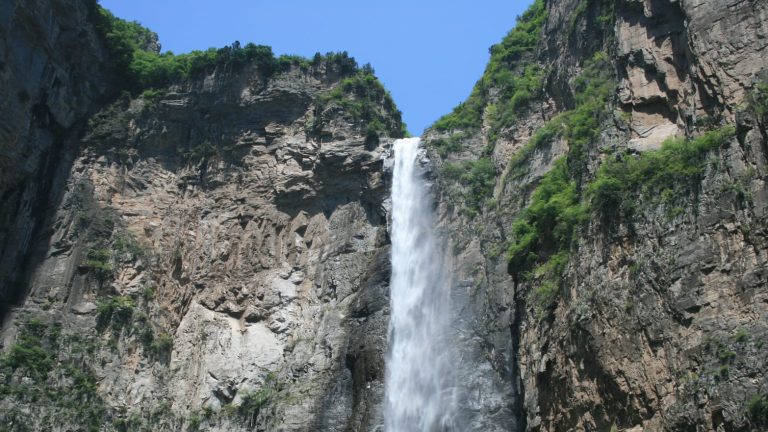Published with permission from LuxuryWeb Magazine
The success of two films, “Boy on a Dolphin” with Sophia Loren, Alan Ladd, and Clifton Webb, and later “Phaedra” with Melina Mercouri and Anthony Perkins, transformed Hydra. Once a quiet Greek island with a notable 19th-century naval history, it became the playground of the Athenian upper class and a “must-visit” location for the international jet set in the early 1960s.
This small island in the Aegean, with a local population of only 1,950 during the ’60s, significantly influenced modern Western and Greek culture.
The picturesque, horseshoe-shaped harbor became crowded with yachts and multi-masted schooners, and the stone houses climbing the steep hillsides became rental residences for the crème-de-la-crème of European, American, and Greek intelligentsia during their summer vacations. A few Greek and foreign artists and journalists even became year-round residents.
Stunning waterfront views
The waterfront is still guarded by a promontory on the left with a circular cannon emplacement featuring 16th-century guns. There are crenellations on top and a stone staircase connecting the emplacement to the town through the buildings next to it. The peripheral road to Mandraki village along the island’s northeast shore still curves around the bottom of the fortification.
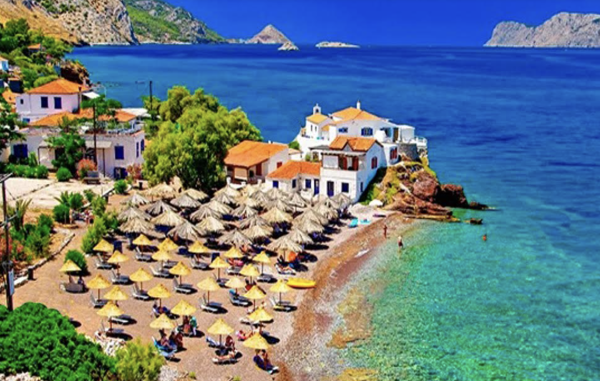
Success
You are now signed up for our newsletter
Success
Check your email to complete sign up
Along the harbor’s inner perimeter, coffee shops and restaurants with tan or blue awnings line the way. In the summer, tables and chairs in front of these establishments allow patrons to enjoy coffee, pastry, ice cream, or a grilled cheese and ham sandwich al fresco while gazing at the colorful fishing boats moored at the quay.
The sea-captain mansions overlooking the harbor have been adapted into season-long summer rentals, and the scent of jasmine, crawling up the stony buildings from the back gardens, permeates the evening air. Storage spaces for fishing boats at the bottom of these mansions have been converted into shops selling tourist merchandise or into bars and night spots.
‘Swimmer’s cave’
On the right side of the harbor, under another promontory, is the “swimmer’s cave,” a large and deep cave carved out of the island’s rock by the sea. It served as the city’s beach, where suntanned young people congregated, preferring it to the longer walk to the organized Vlihos beach over a kilometer away.
Cement platforms flanking the cave’s entrance provided access to the water, and adventurous swimmers would jump off the top of the cave into the deep water. Above the cave, a 16th-century gun emplacement serves as the porch of a coffee shop and restaurant.
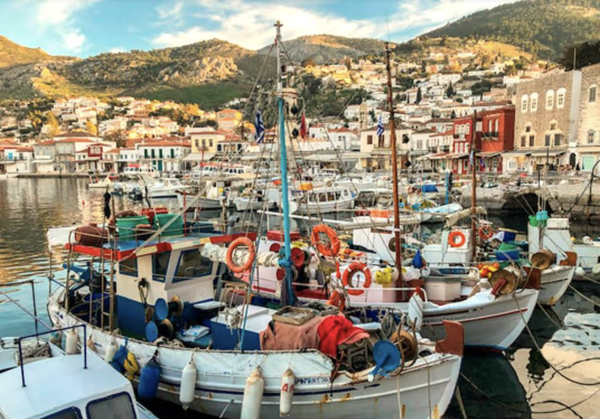
The best-known establishment was the original “Lagoudera Marine Club,” located in one of the converted boat storage spaces on the ground floor of a mansion near the harbor entrance. This long, two-story space featured a colorful fishing boat hanging from the rafters and another boat, cut lengthwise, serving as a bar. Popular American, English, French, and German records constantly played.
The owner, Babis Morres, a brilliant businessman, played a pivotal role in putting Hydra on the world stage and making Lagoudera an international destination. Brigitte Bardot, Elizabeth Taylor, Aristotle Onassis, Jackie Kennedy, Maria Callas, Leonard Cohen, George Johnston, Henry Miller, and many other personalities were frequent visitors of the island and Lagoudera.
Greek artists and literary figures, including Seferis, Nikos Ghikas, Yannis Tsarouchis, and Melina Mercouri, were also regulars from spring to mid-November.
Cherished memories
I found a photo of me and Melina Mercouri in an envelope with images from Lagoudera during a recent return to Athens. Melina was a very talented Greek theater and film actress before becoming involved in Greek politics and being appointed Minister of Culture. At the original Lagoudera, the very thick stone walls kept the interior cool no matter the outside temperature.
Next to the entrance was a large window with a wide windowsill that comfortably held a mattress. That mattress became my perch from which I observed the world, happily hungover, with a brandy snifter in hand. I started going to Hydra with my then-girlfriend for weekends of swimming, dancing, and fun.
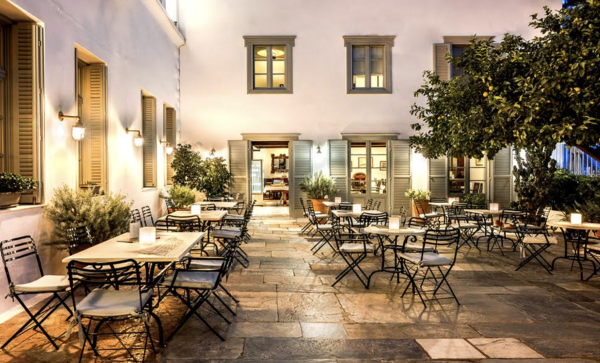
There were a few 2- and 3-star hotels in town, but it was less expensive and less intrusive to rent a room in someone’s home. Many good rooms were available, although hotels required registration using an identity card or passport. The Greek government frowned on a man and a woman, or a boy and a girl, sharing a room if they did not have the same last name. Villagers renting rooms mostly did not care, unless they were highly religious (Greek Orthodox).
There were a few organized beaches on the island, with Vlichos, more than a kilometer away from the main town, being one of the earliest. One could walk to it along the peripheral road connecting the main town to the island’s villages or take a “sea taxi,” often a fishing boat converted for taxi duty or a resident’s speedboat.
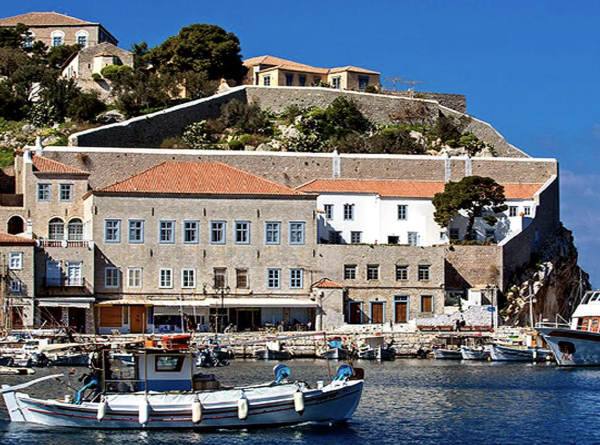
Getting around the island
These boats ferried passengers to beaches, making extra money for their owners. No motor vehicles were allowed on the island, except for a single truck used to carry heavy building materials and the town’s garbage to the dump. If you had large packages or suitcases, donkeys, mules, and horses were available at the harbor to carry them.
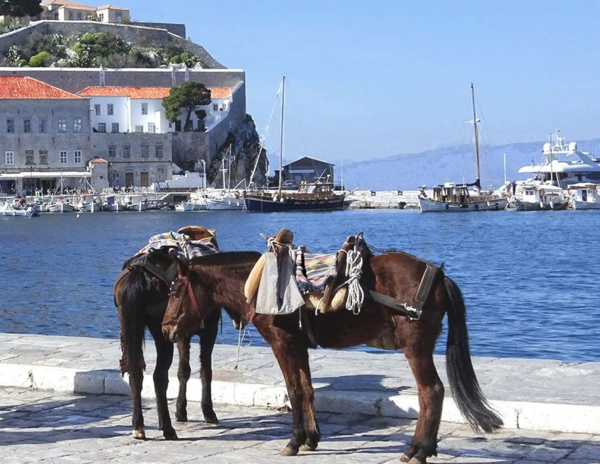
Many interesting individuals vacationed or lived on the island. One fascinating visitor was a Swedish journalist from Bromma who spent the entire summer on Hydra. She smoked cigarillos, drank a bottle of ouzo in one sitting without getting drunk, and was an exceptional writer and photographer. She spent most of her day typing on a small portable typewriter, writing tell-all articles for two Swedish newspapers and a magazine, as well as a Danish magazine.
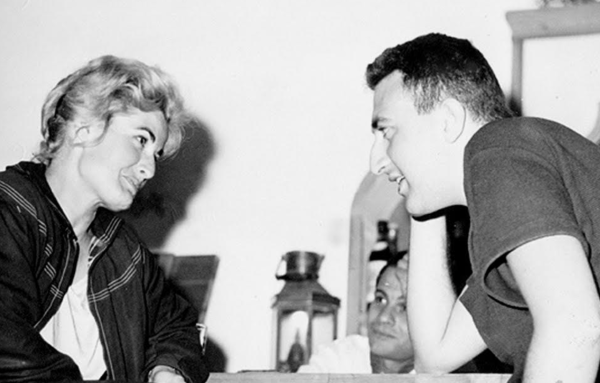
The rest of her day was spent taking photos, swimming, and socializing, mostly with “Greek locals” in search of interesting stories. She became my guide to the international art community, as she knew everyone.
In the late afternoon, after our swim, we would sit at local coffee shops enjoying iced coffee, glasses of ouzo or brandy on the rocks, beer, cold sour-cherry visinada, or the Greek version of Pepsi, along with assorted meze.
A visitor’s paradise
During a recent visit, I found that Hydra has not really changed since then. In 1966, the town’s abattoir by the harbor’s entrance was converted by Babis into The Omilos, a bar, lunch spot, swimming venue, and night boîte replacing Lagoudera, and all the clientele moved to this new venue. After Babis passed, it became a restaurant with an exceptional chef.
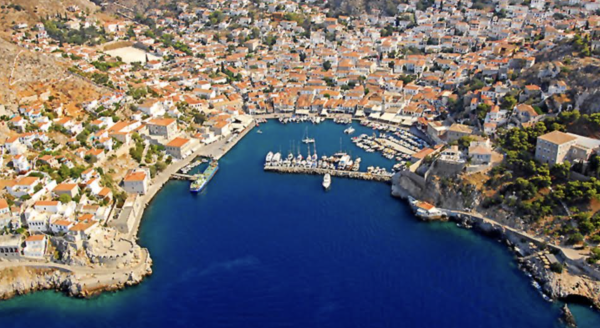
In addition to the 2- and 3-star hotels by the harbor, a couple of other newer 3-star properties were adapted from large traditional homes near the top of the hill above the harbor. There are now also a few new restaurants, more upscale with international kitchens compared to the local tavernas that once fed both residents and tourists.
The local cuisine is still very tasty, based mainly on fresh fish caught the same day in seine nets, assorted seafood pried from the rocky seashore and the sand of the few beaches, chicken from backyard coops, and lamb raised on the rocky hills. Practically every home has gardens where vegetables and fruit are grown for household needs, and honeysuckle and jasmine crawl up the stone walls, filling the air with their aroma.
There are new tourist shops around town, and as in the ’60s, artists, actors, entertainers, writers, and other members of the intelligentsia still come to Hydra for a weekend, a week, or even a couple of months. Many are so enchanted by Hydra that they become permanent residents.
Visit LuxuryWeb Magazine to see the original article and more.



